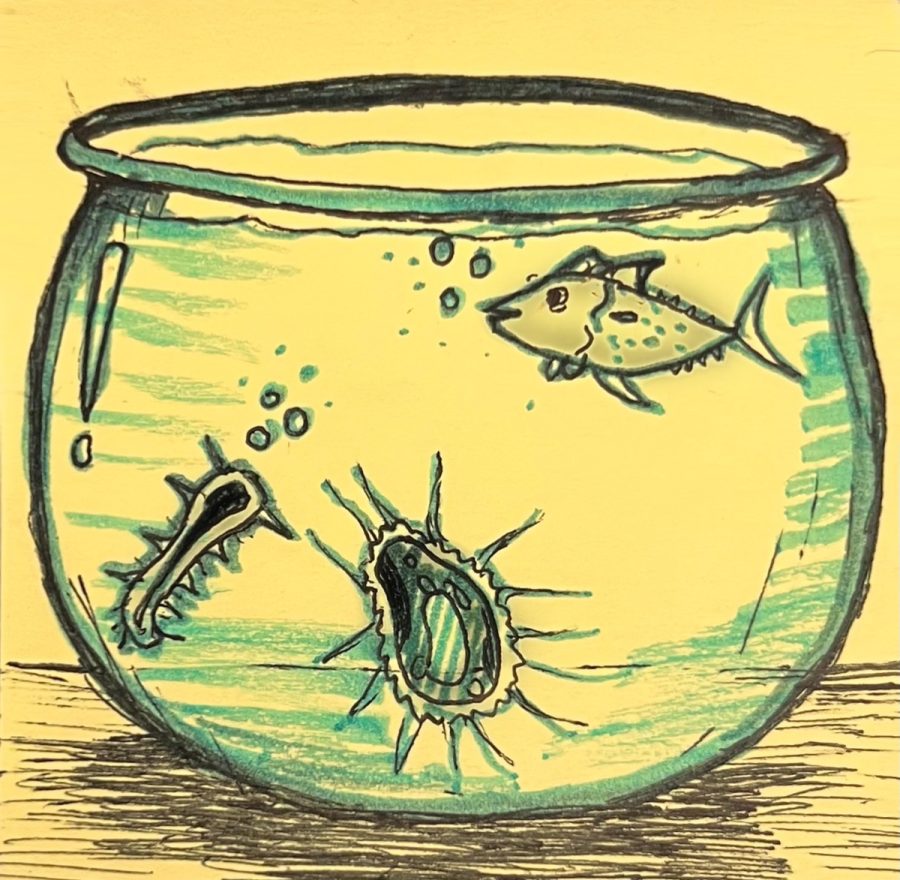UT and Harvard researchers study the impact of climate change on plankton
March 5, 2023
Climate change could cause plankton to move away from the equator, affecting larger organisms like tuna and krill, according to a collaborative study between UT and Harvard researchers published last month.
Study co-lead Adam Woodhouse, a postdoctoral fellow at the UT Institute of Geophysics, said he and the researchers conducted the study using a fossil database called Triton that he and colleagues at the University of Oxford created. To create Triton, Woodhouse and his team used data on planktonic foraminifera, a type of plankton with skeletons around the size of a grain of sand, that was collected over the last 55 years through ocean drilling programs.
Woodhouse said the distributions of foraminifera in the ocean matches distributions of organisms humans rely on like krill, squid and tuna.
“Billions of people, especially in low latitude coastal communities, rely on these resources for not only their livelihood, but for sustenance,” Woodhouse said.
Woodhouse said as the earth has cooled over the last eight million years, plankton communities have shifted towards the equator by around 2000 miles. However, scientists recognized a warming trend in the last 150 years since the Industrial Revolution.
“If we return back to a warmer world from eight million years ago and our plankton communities shift 2000 miles away from the equator, will those resources which human beings are relying on shift?” Woodhouse said. “If we remove species or introduce new species into different food webs in a short space of time, we could see extinction cascades occurring.”
Woodhouse said the most unique part of the study is the application of networks.
“Network science looks at the system as a whole and looks at how things are interrelated and correlated,” said Anshuman Swain, co-lead author of the study.
Swain, a junior fellow at the Harvard Society of Fellows, said the team also found ecological and species diversity only became correlated in the last two million years due to the formation and now-melting of the ice sheets in the poles. Swain said ecological groups are organized based on organisms’ traits, such as whether they do photosynthesis.
Woodhouse said the team plans to compare the record of the plankton with fossil records of fish and diatoms.
“The next step is to incorporate more of the tree of life into these networks and work out how to better predict what could potentially happen in the near future if our current (climate change) trends over the last 150 years continue,” Woodhouse said.












